The Covid winning strategy of Solomon Lew and Mark McInnes
The two men powering Premier Investments have seen off an invasion of multinational brands in Australia, expanded the business internationally and ridden a crisis that literally shuttered retail around the world.
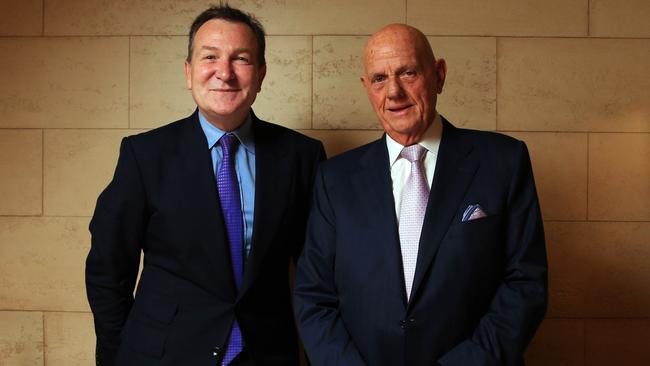
Solomon Lew and Mark McInnes blew through their January guidance last week with an 89 per cent lift in first-half profits for Premier Investments to $237.8m. All the talk was around their big call during lockdown to build up stock inventories in Smiggle, Peter Alexander and the five other brands in apparel.
Yet if shareholders take a step back, these results are the reward for a strategy cooked a decade ago by one of the greatest chair/CEO partnerships Australia has even seen. In that time, Lew and McInnes have seen off an invasion of multinational brands in Australia, expanded the business internationally and ridden a crisis that shuttered retail around the world, some of it for good.
If Lew and McInnes are not an MBA case study yet, they should be. Premier is now positioned for expansion and acquisitions offshore.
McInnes joined Premier exactly 10 years ago, after Lew had taken over the Just Group. “When Mark arrived, we had a total rethink and a total restructure. We had zero online business,” Lew says.
“We looked at the rental structure going forward, and how the landlords were demanding from us continuous increases on rent, even if they had falling sales in shopping centres.
“We built a very strong team of product people: general managers, managing directors of businesses, planners, buyers. And everybody wanted to come and work for us. We are good employers, we pay well. We are business people.”
In January, McInnes told the market he would be stepping down in 12 months to focus more on family, charting the end to a remarkable double act.
“You see plenty of companies that don’t have the level of relationship between the chief executive officer and the chairman or the level of respect that we have for each other,” McInnes says. “That’s a very rare thing. And it’s a very good thing.”
“Remember, I grew up as a young cadet and Sol was the kind of chairman of Coles Myer, as a retailer and a businessman. I feel grateful and blessed to have worked with Sol.”
From the start, both men agreed the secret to online success was to be a fully integrated business. “This is where a lot of Australian retailers have failed,” McInnes says. “And by that full integration, we mean we wanted to control the supply chain and the margin to the customer.”
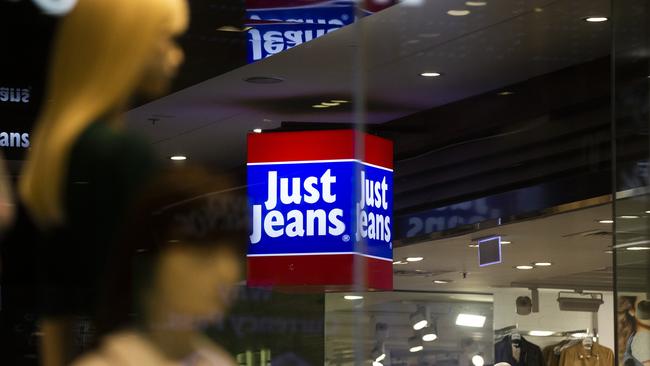
Premier built a fully integrated supply chain with its own distribution centre and a marketing and digital marketing program across the business.
“In Australia, all the inventory comes through one location and can be sent either to stores or online,” says McInnes.
“We control all of the stock, and we have one marketing program by brand, we don’t have a stores marketing programming and an online marketing program, they are fully connected.”
As a result, Premier’s online business has enjoyed a much higher EBIT margin than its retail store channel.
One important early call on growth by the pair was to invest heavily in two company own brands, Peter Alexander and Smiggle, rather acquisitions.
“When you have the base, you’ve got to nurture it,” Lew says.
“We kept putting our money in where it was required and growing.”
The international success of Smiggle in capturing the school market in recent years and the love-in with Peter Alexander has underpinned Premier’s growth.
Perhaps more remarkable is the success of the five apparel brands, including Just Jeans and Portmans.
“We have seen off the big European expansion in Australia — Zara H&M, Uniglo. We’ve clearly outperformed all clothing brands,” says McInnes.
Lew agrees, saying: “Amazing competition, a lot of people fell out of business.”
Total visibility over the supply chain and years of retail experience on the supply side and the buy side was a winning formula. Lew says margin improvement did not come just because you are in stock. It is about having the right stock. “Hot Cross Buns after Easter aren’t worth very much,” he says. “Continuously, we are giving people what they want when they want it. We can make decisions because we’re in the business. We’re not removed from the business.”
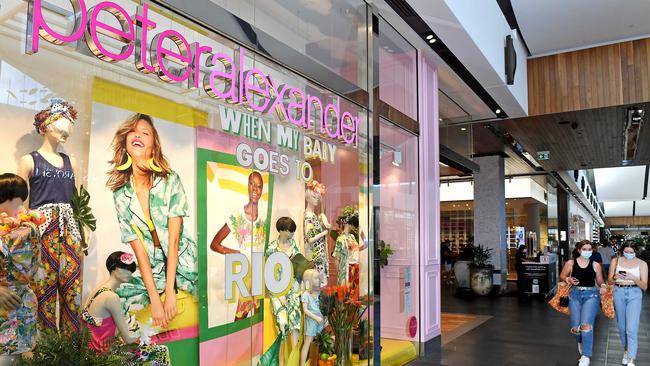
In May last year, it was chairman and CEO who together made the critical decision to place big stock orders for the Christmas period, in the midst of the shutdown and chaos within the retail sector.
“We decided to commit in all of our brands for stock. Quite a few of our business heads didn’t want to make the same level of commitment as we wanted to make,” McInnes says.
Orders were placed for summer stock, Black Friday stock, Christmas stock, January style stock and even later into the season. Those decisions made from May to July delivered success in the critical Christmas quarter, which continues: “In the first seven weeks of this season, like-for-like sales up 32.1 per cent and gross margin improvement of 379 basis points,” McInnes says.
Both men are expecting a bumper next half with Easter, Mother’s Day and June sales — all of which were cancelled by COVID last year — to come.
With these results and profit expectations, Premier has been in the media crosshairs for not repaying $15.6m in JobKeeper benefits to the government. Instead, the funds are being quarantined to pay staff in any future snap lockdown.
“Ninety-seven per cent of JobKeeper money went to private enterprise; 3 per cent went to public companies. Both sides of politics approved the legislation. Does that mean that Labor is going to pursue private enterprise at some point in time to repay the money?” Lew asks. “This was done to keep people employed and we have done more than that. JobKeeper 1 finished for us in September and we paid people from October to February and here in Victoria, they put in a state of emergency to December to the end of the year.”
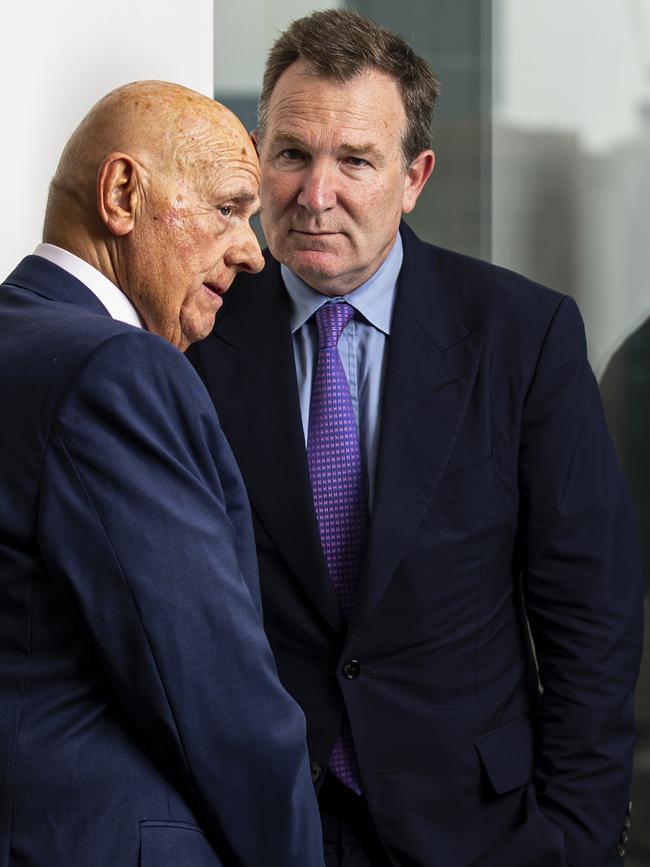
The other pillar of Premier’s strategy is landlords. McInnes and Lew are writing the book on renegotiating rents and, most importantly, shortening leases.
“We purposely shortened our leases to ensure that we took advantage of a changing industry structure,” McInnes says. “Over time our online business has gone from $8m to $260m this year and we have had meaningful discussions with landlords about changes in consumer shopping habits, that we want our rents adjusted to a new sales base that can be achieved in that location, which makes us profitable.”
Over the last seven years, Premier shut almost 170 stores, but McInnes insists the aim has not been to close stores: “It is just an aim to get rents in line with the sale that we do. And we’ve been successful in that.”
McInnes’ take on the US market is instructive. Major apparel businesses like JC Penny, Neiman Marcus and J Crew are only now emerging from Chapter 11. “They are overstored. They don’t have great online businesses. They’ve got a lot of leases and they haven’t got the product focus we have.”
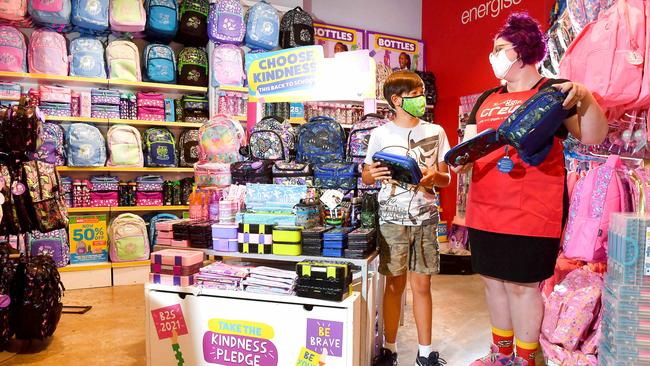
Neither chairman nor CEO has much appetite for new apparel assets internationally. But there are ambitions for the Smiggle brand, now strong in the UK, Singapore and Malaysia and other wholesale markets, and for Peter Alexander, currently in Australian and New Zealand.
Both men are watching how different markets recover, but would consider acquisitions and organic expansion. “Within the countries where we were sitting, it could be either, it could be both” Lew says. “There is no restriction, it’s a question of finding the right business fit for us.”
Speculation on what McInnes does next runs from private equity to leading a multinational. Is he interested in a turnaround of JC Penny? He laughs. “I’m focused on delivering another record with winter 21 and financial year 2021. I haven’t thought about that. That’s a subject for another day.”
And will they miss each other, these two who for years have finished each other’s sentences?
“Let me put it this way,” says the chairman. “When you have the admiration that the one has for the other, it never ends. And when Mark came to me and said, ‘you know, Sol, I really need to do this for personal reasons’, as much as I wasn’t happy about it, I understood and I accepted it, because Mark has made a great contribution to the company.
“And I’m sure that likewise, if I would call Mark, he would call me and at any point in time …” “Any time,” McInnes interjected.
“There is only good there is no bad,” says Lew.





To join the conversation, please log in. Don't have an account? Register
Join the conversation, you are commenting as Logout